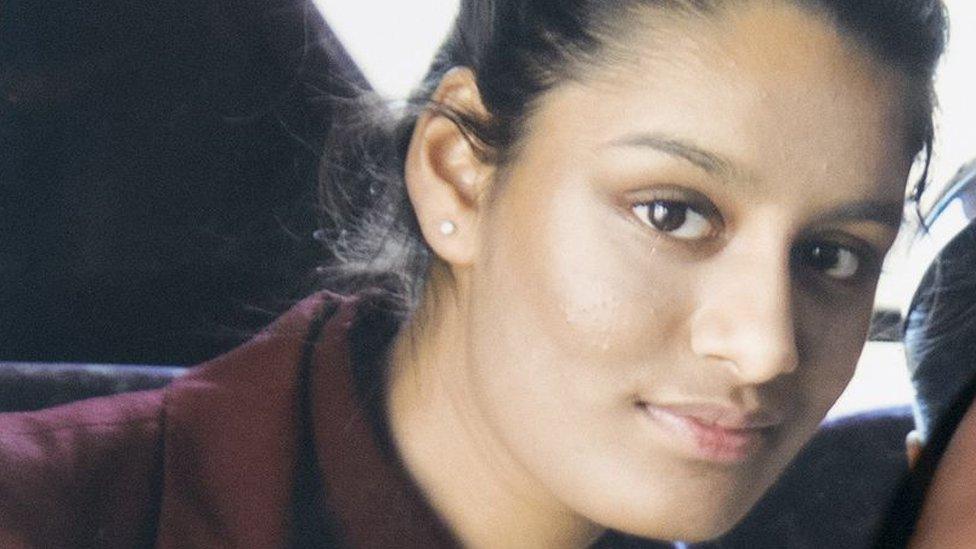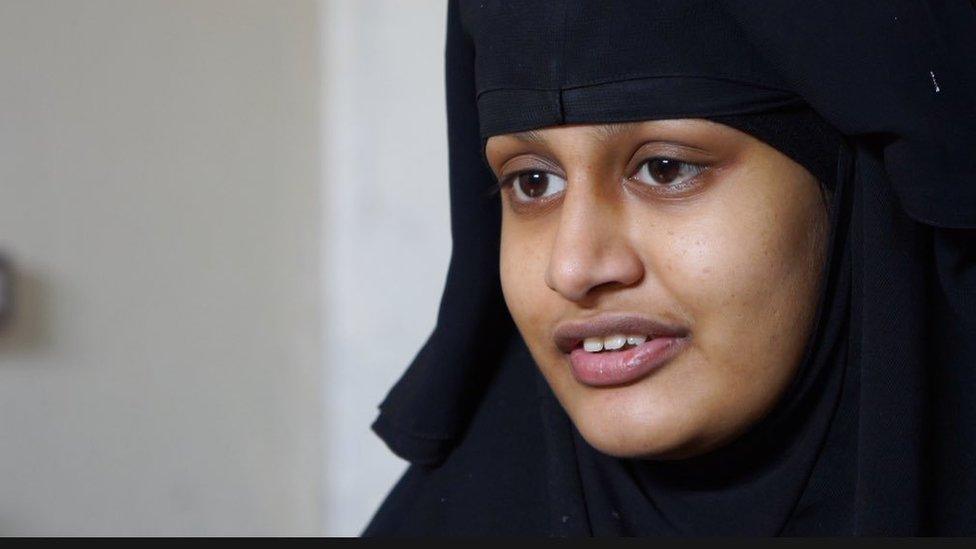Shamima Begum loses first stage of appeal over citizenship
- Published

Ms Begum was 15 and living in Bethnal Green, London, when she left the UK in 2015
Shamima Begum has lost the first stage of her appeal against the government's decision to remove her UK citizenship.
Ms Begum, now 20, left London in 2015, aged 15, to join Islamic State. She was found in a Syrian refugee camp in February 2019.
Former Home Secretary Sajid Javid stripped her of her UK citizenship later that month.
A tribunal ruled that Ms Begum could be stripped of her nationality because she had not been left stateless.
The Special Immigration Appeals Commission (SIAC), a semi-secret court which hears national security cases, said she could instead turn to Bangladesh for citizenship.
Under international law, it is illegal to deprive nationals of citizenship if to do so would leave them stateless.
Rejecting the 20-year-old's case that she had been left stateless, the Commission concluded that Ms Begum was "a citizen of Bangladesh by descent".
Ms Begum is understood to have a claim to Bangladeshi nationality through her mother.
However, in February 2019, Bangladesh's ministry of foreign affairs said Ms Begum was not a Bangladeshi citizen and there was "no question" of her being allowed into the country.
'Urgent appeal'
Ms Begum's lawyer, Daniel Furner, said his client would "immediately initiate an appeal" against the decision "as a matter of exceptional urgency".
He added that the dangers Ms Begum faced had now increased and "her chance of survival [was] even more precariously balanced than before".
At present, she remains in Camp Roj, a refugee camp in northern Syria. The commission also ruled that Mr Javid had not exposed Ms Begum to human rights abuses by leaving her in the camp.
Judge Doron Blum, announcing the decision of the tribunal, said that although there were concerns about how Ms Begum - in Syria - could take part in the proceedings in London, those difficulties did not mean the home secretary's decision should be overturned.
"[Ms Begum] left the UK apparently of her own free will some years before the decision - and she was not outside the UK as a result of the decision."
The Home Office welcomed the ruling, adding that "it would be inappropriate to comment further whilst legal proceedings are ongoing".
The case will now move on to consider whether the government had legitimate national security grounds to bar Ms Begum from coming back to the UK.
Shamima Begum's lawyers say she professed sympathy for IS to protect herself and her son (Video from February 2019)
At a hearing in October last year, Ms Begum's lawyers said she had only professed sympathy for the Islamic State group in media interviews to protect herself and her newborn son, who later died in the refugee camp.
Ms Begum left Bethnal Green, in east London, for Syria in February 2015, with two school friends.
Within days she had crossed the Turkish border and eventually reached the IS headquarters at Raqqa, where she married a Dutch convert recruit. They had three children - all of whom have since died.
- Published22 October 2019
